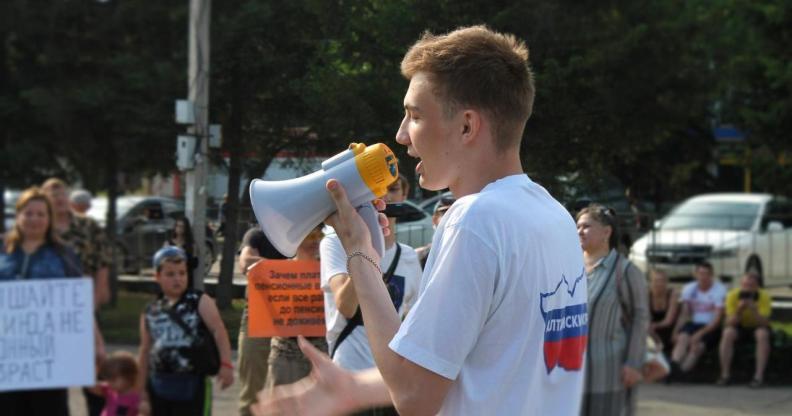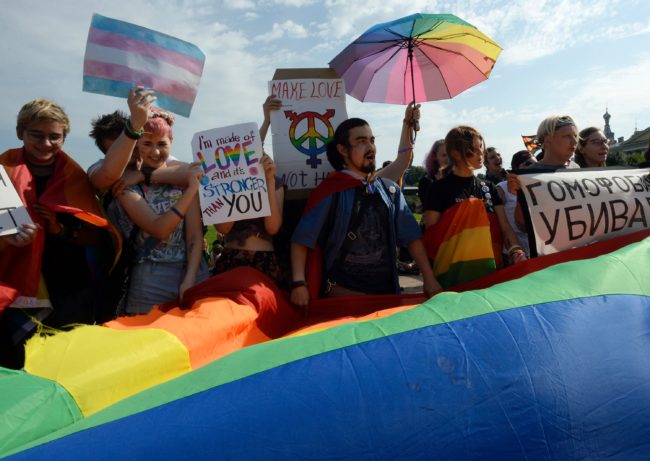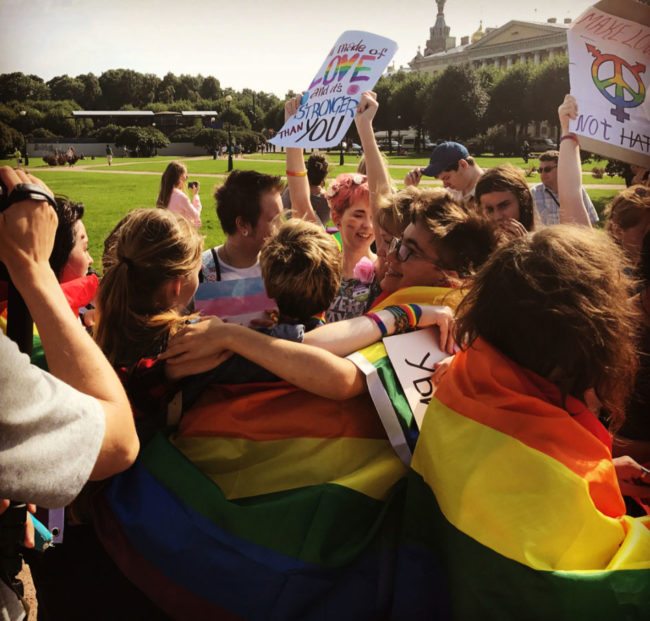First minor prosecuted under Russia’s anti-gay propaganda law appeals fine

Maxim Neverov was prosecuted under the country’s anti-gay propaganda law (Russian LGBT Network)
The first minor to be prosecuted under Russia’s anti-gay propaganda law has appealed his fine.
Maxim Neverov, 16, was found guilty of “promoting non-traditional sexual relationship among minors” and fined 50,000 rubes (£600).
But the 16-year old’s lawyer said on Monday (August 20) that he has filed an appeal, reports Reuters.
“Yesterday we mailed our appeal [to the authorities]. It should be considered and ruled on within two months,” Neverov’s lawyer Artyom Lapov told Reuters.
The Russian LGBT Network, who provided a lawyer for Neverov, published the story about Neverov’s case on its website on August 8.
According to the report of the offence, Neverov, who is from the town of Biysk, published “some pictures of young men whose appearance (partly nude body parts) had the characteristics of propaganda of homosexual relations.”
The Russian LGBT Network claimed the teen was not allowed to consult his lawyer when the officer was filing the report.
The group also suggested that Neverov could have been targeted because he took part in a highly public protest called “Gays or Putin,” in May.
The performance was discussed in the Russian federal legislative assembly, known as the Duma.

An LGBT pride rally in St Petersburg (OLGA MALTSEVA/AFP/Getty)
Neverov had previously submitted 12 applications for permission for the performance and was refused a permit. The teen also attempted to organise a local pride parade.
According to the network, in the teenagers case materials there was a document which reported that there was a public outcry over the pride parade.
Russia’s anti-gay propaganda law was passed in 2013 banning “propaganda of nontraditional sexual relationships.”

Authorities recently clamped down on LGBT+ activists in Russia. (rainbow.spb/Instagram)
Hate crimes against LGBT people have doubled in the country since the law was passed.
In August, police detained around 30 LGBT+ activists in St Petersburg.
A total of about 60 campaigners assembled in Palace Square after their request for a pride parade was turned down by local authorities.
The incident appeared to confirm fears voiced by LGBT people in Russia during this summer’s World Cup that the relaxed policing towards the community would end after the competition, which finished on July 15.

